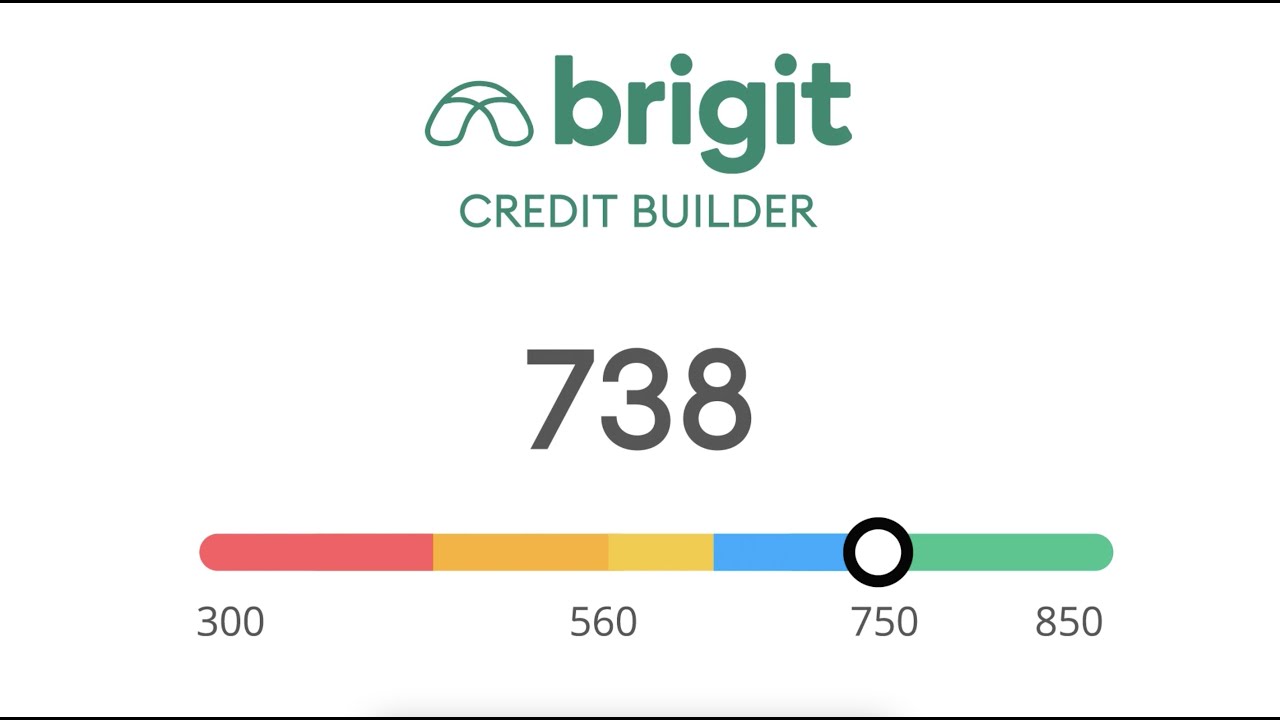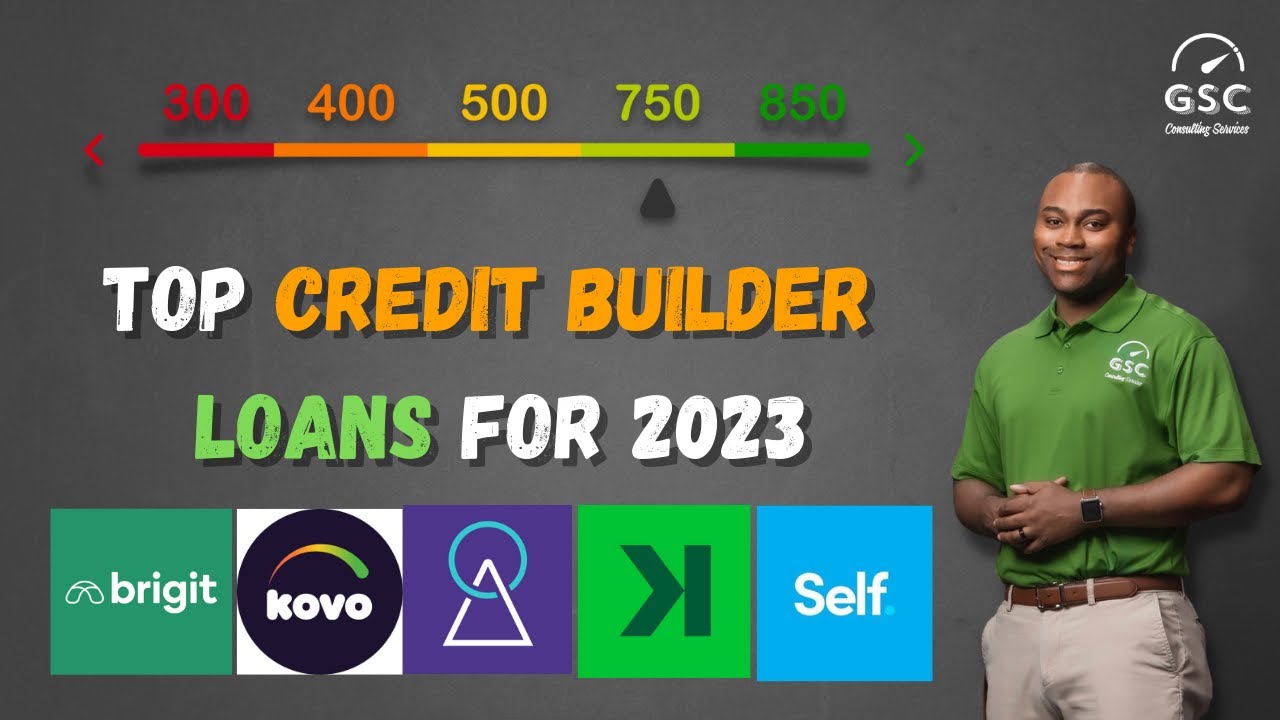In today's financial landscape, having a solid credit score is essential for various reasons, such as securing loans, renting an apartment, or even getting a job. However, building or repairing credit can be challenging, especially if you have limited credit history or a poor credit score. In this article, we will delve into what is credit builder loan, exploring its purpose and how it works. That's where a credit builder loan comes into play. A credit builder loan is a unique financial tool designed specifically to help individuals establish or improve their creditworthiness.
What Is Credit Builder Loan?

What is Credit Builder Loan and How Does it Work
A credit builder loan is a type of loan designed specifically to help individuals establish or improve their credit history. It is a financial tool that allows borrowers to build creditworthiness by making regular payments over a fixed period of time.
Unlike traditional loans, the approved loan amount is not immediately disbursed to the borrower. Instead, the funds are held in a separate account, such as a savings account or certificate of deposit (CD), while the borrower makes regular payments toward the loan. These payments are reported to credit bureaus, which helps build a positive credit history and improve the borrower's credit score.
Credit builder loans are often accessible to individuals with limited or poor credit history, as the approval criteria are typically more lenient compared to traditional loans. The loan amounts are generally lower, ranging from a few hundred to a few thousand dollars, and the repayment terms are relatively shorter, usually ranging from six months to two years.
By demonstrating responsible financial behavior and making timely payments, borrowers can gradually improve their credit scores and enhance their creditworthiness. Once the loan is fully repaid, the borrower gains access to the funds held in the separate account, which can serve as savings or be used for other financial purposes.
How Does A Credit Builder Loan Work?

Credit Builder by Brigit: How it works
A credit builder loan works in a unique way compared to traditional loans. Here's a step-by-step breakdown of how it typically operates:
- Loan Application -The borrower applies for a credit builder loan through a financial institution or credit union. The application process may involve providing basic personal and financial information, but the requirements are often more lenient compared to other loans, making it accessible to individuals with limited or poor credit history.
- Loan Approval and Terms -If approved, the borrower agrees upon the loan amount and repayment terms with the lender. Credit builder loans often involve smaller loan amounts, ranging from a few hundred to a few thousand dollars, and shorter repayment periods, typically six months to two years.
- Loan Funds in a Separate Account -Unlike traditional loans where the borrower receives the loan amount upfront, with a credit builder loan, the approved funds are not immediately disbursed. Instead, the lender deposits the loan amount into a separate account, such as a savings account or certificate of deposit (CD), which is held as collateral for the loan.
- Regular Payments -The borrower starts making regular monthly payments towards the loan. These payments are usually fixed and must be made on time. The lender reports the borrower's payment activity to credit bureaus, such as Equifax, Experian, and TransUnion, on a regular basis. This helps establish a positive payment history, which is a crucial factor in building credit.
- Credit Building -As the borrower continues to make timely payments over the loan term, the credit builder loan contributes to building or improving their credit history. Each payment demonstrates responsible financial behavior and adds positive information to their credit report.
- Loan Completion and Access to Funds - Once the borrower completes the loan term and makes all the required payments, the funds held in the separate account are released to them. At this point, the borrower not only has a better credit history but also gains access to the funds that were being held as collateral.
How Much Does A Credit Builder Loan Cost?
The cost associated with a credit builder loan can vary depending on the lender and the specific terms of the loan. Here are a few factors to consider regarding the costs of a credit builder loan:
- Interest Rates -Credit builder loans may carry interest rates, just like other types of loans. The interest rates can vary depending on the lender and the borrower's creditworthiness. However, the interest rates on credit builder loans tend to be relatively lower compared to other loan types.
- Loan Fees -Some lenders may charge fees for originating the credit builder loan or for servicing the loan over its term. These fees can include application fees, administrative fees, or other charges. It's essential to carefully review the loan agreement and understand any fees associated with the credit builder loan.
- Secured Savings Account -In a credit builder loan, the loan amount is typically held in a separate account, such as a savings account or a certificate of deposit (CD), as collateral for the loan. The funds in this account may accrue interest, and any interest earned could offset some of the costs associated with the loan.
- Total Repayment Amount -The total amount you will pay back over the loan term includes the principal amount borrowed, any applicable interest charges, and any fees associated with the loan. The specific repayment amount will depend on the loan amount, interest rate, and loan term agreed upon with the lender.
It's crucial to carefully review and compare the terms and costs of credit builder loans from different lenders before making a decision. Understand the interest rates, fees, and total repayment amount to assess the overall cost of the loan. By comparing different options, you can choose a credit builder loan that aligns with your financial goals and offers the most favorable terms and costs.
Credit Builder Loan Example
To illustrate how a credit builder loan works, let's consider an example:
John is a young professional who wants to establish a credit history and improve his credit score. He decides to apply for a credit builder loan. After researching different lenders, John chooses a credit union that offers credit builder loans.
- Loan Application -John submits his application for a credit builder loan with the credit union. He provides his personal information, employment details, and other necessary documents.
- Loan Approval and Terms -The credit union approves John's loan application. They agree on a loan amount of $1,000 with a repayment term of 12 months. The interest rate for the credit builder loan is set at 8%.
- Loan Funds in a Separate Account -Instead of receiving the $1,000 upfront, the credit union deposits the loan amount into a separate savings account in John's name. This account serves as collateral for the loan.
- Regular Payments -John starts making fixed monthly payments towards the loan. In this case, his monthly payment would be approximately $87. Over the 12-month term, he makes timely payments each month.
- Credit Building -The credit union reports John's payment activity to the credit bureaus on a regular basis. Each on-time payment contributes to building a positive credit history and improving his credit score.
- Loan Completion and Access to Funds -After making all 12 monthly payments, John successfully completes the credit builder loan term. As a result, the credit union releases the funds held in a separate account, which amounts to $1,000. John now has established a positive credit history and improved his creditworthiness.
In this example, John used the credit builder loan to demonstrate responsible financial behavior by making regular payments over time. The loan helped him build a positive credit history, and upon completing the loan, he gained access to the funds held in a separate account. Additionally, John's credit score has improved, opening doors to better financial opportunities in the future.
How Do Credit Builder Loans Help Build Credit?
Credit builder loans are specifically designed to help individuals build or improve their credit. Here's how these loans contribute to building credit:
- Payment History -Making regular, on-time payments is a critical factor in building a positive credit history. With a credit builder loan, you are required to make fixed monthly payments over the loan term. Each payment you make is reported to credit bureaus, such as Equifax, Experian, and TransUnion. By consistently making timely payments, you demonstrate responsible financial behavior, which positively impacts your credit history.
- Credit Mix -Credit builder loans add diversity to your credit mix, which is another important aspect of building credit. Credit scoring models consider a mix of credit types, including installment loans like credit builder loans, along with credit cards and other forms of credit. Having a diverse credit mix can demonstrate your ability to manage different types of credit responsibly, thereby boosting your creditworthiness.
- Credit Utilization -Credit utilization refers to the amount of available credit you are currently using. With a credit builder loan, the loan amount is deposited into a separate account and not immediately accessible to you. Since you cannot access the funds until the loan is paid off, the loan does not contribute to your credit utilization ratio. Maintaining a lower credit utilization ratio can have a positive impact on your credit score.
- Creditworthiness and Trust -Successfully repaying a credit builder loan helps establish trust and credibility with lenders. As you demonstrate your ability to make timely payments and responsibly manage credit, your creditworthiness increases. This can lead to better terms and opportunities for future credit applications, such as lower interest rates on loans or higher credit limits on credit cards.
- Long-Term Credit Building -Credit builder loans are designed for a fixed term, typically ranging from six months to two years. During this period, you have the opportunity to build a positive credit history and improve your credit score. However, the impact of a credit builder loan on your credit is not limited to the loan term. The positive credit history established through timely payments can continue to benefit your credit profile even after the loan is paid off.
Can Credit Builder Loans Hurt My Credit?
No, credit builder loans are specifically designed to help individuals build or improve their credit and typically do not have a negative impact on credit scores. However, it's important to understand that responsible management of the credit builder loan is crucial to ensure a positive outcome. Here are a few considerations:
- Payment History -Making regular, on-time payments is essential for building credit. If you consistently make late payments or default on your credit builder loan, it can have a negative impact on your credit score. It's crucial to budget and plan your finances accordingly to ensure timely payments.
- Credit Utilization -While credit builder loans do not contribute to your credit utilization ratio directly since the loan funds are held in a separate account, it's important to manage your other credit accounts responsibly. If you simultaneously accumulate high balances on other credit cards or loans, it could negatively affect your credit utilization ratio, which may impact your credit score.
- Overall Financial Management -Credit builder loans are just one aspect of your overall financial picture. It's important to practice responsible financial habits such as paying bills on time, maintaining a healthy credit mix, and keeping credit card balances low. These factors contribute to building and maintaining good credit.
- Credit Inquiries -When you apply for a credit builder loan, the lender may perform a credit inquiry, which can result in a temporary decrease in your credit score. However, the impact is usually minimal and short-lived. It's important to limit the number of credit inquiries and only apply for credit when necessary.
In summary, when managed responsibly, credit builder loans are intended to help build credit and typically do not have a negative impact. By making timely payments, maintaining good overall financial habits, and managing your credit responsibly, a credit builder loan can be an effective tool for improving your credit score and creditworthiness.
Where To Find A Credit Builder Loan?

These credit builders will help you get approved for a home!
Credit builder loans can be found at various financial institutions, including banks, credit unions, and online lenders. Here are some options to consider when looking for a credit builder loan:
- Local Banks and Credit Unions - Start by checking with local banks and credit unions in your area. They often offer credit builder loan programs as part of their services. Visit their websites or contact their customer servicerepresentatives to inquire about a credit builder loan options and eligibility criteria.
- Online Lenders -Many online lenders specialize in providing credit builder loans. These lenders may offer more flexibility and convenience, allowing you to apply for a loan and make payments online. Research reputable online lenders and compare their loan terms, interest rates, and fees before making a decision.
- Community Development Financial Institutions (CDFIs) -CDFIs are financial institutions that aim to provide affordable financial services to underserved communities. They often offer credit builder loan programs as part of their efforts to promote financial inclusion. Research CDFIs in your area or consider online CDFIs that offer credit builder loan products.
- Nonprofit Organizations -Some nonprofit organizations and community-based organizations may offer credit builder loan programs to assist individuals in building credit. These programs may come with additional resources and financial education to support your credit-building journey.
- Credit Builder Loan Apps -There are also mobile apps and platforms that specialize in providing credit builder loans. These apps typically have user-friendly interfaces and may offer additional features such as credit monitoring and financial education resources. Research and compare different credit builder loan apps to find one that suits your needs.
Credit Builder Loan Alternatives
If a credit builder loan doesn't meet your needs or if you're looking for alternative options to build credit, here are some alternatives you can consider:
- Secured Credit Cards -Secured credit cards are a popular option for building or rebuilding credit. With a secured credit card, you provide a cash deposit as collateral, which becomes your credit limit. By making regular payments on time and keeping your credit utilization low, you can establish a positive credit history. Over time, you may be eligible for an unsecured credit card.
- Credit-Builder Secured Loans -Similar to credit-builder loans, credit-builder secured loans are offered by some financial institutions. These loans require a deposit that is held in a separate account. You make monthly payments toward the loan, and once it is fully repaid, the funds are released to you. This helps you build credit while also building savings.
- Authorized User or Joint Account -If someone you trust has good credit, they can add you as an authorized user or open a joint account with you. Their positive credit history can reflect on your credit report and help boost your credit score. However, it's crucial to ensure that the account is managed responsibly, as any negative activity can also impact your credit.
- Credit-Builder Programs -Some nonprofit organizations, credit unions, and community development financial institutions (CDFIs) offer credit-builder programs. These programs often combine financial education with tools and resources to help you build credit. They may offer small loans or secured savings accounts to help establish creditworthiness.
- Rent Reporting Services -Rent reporting services allow you to report your rent payments to credit bureaus, which can positively impact your credit history. By demonstrating a consistent record of timely rent payments, you can build credit over time. Research reputable rent reporting services that work with major credit bureaus.
Remember, regardless of the method you choose, it's essential to practice responsible financial habits. Make all payments on time, keep credit utilization low, and monitor your credit regularly to track your progress. Building credit takes time, consistency, and responsible financial management.
People Also Ask
How Does A Credit Builder Loan Improve My Credit Score?
A credit builder loan helps improve your credit score by providing an opportunity to demonstrate responsible repayment behavior. As you make regular payments on time, this positive payment history is reported to credit bureaus, which gradually boosts your credit score.
Can I Get A Credit Builder Loan With Bad Credit?
Credit builder loans are specifically designed for individuals with limited or poor credit history. Lenders often have more lenient approval criteria, making these loans accessible to those with bad credit.
What Is The Purpose Of Holding The Loan Funds In A Separate Account?
The purpose of holding the loan funds in a separate account is to ensure that you make regular payments towards the loan. This provides security for the lender and helps establish a positive payment history, which is essential for building credit.
How Long Does It Take To Build Credit With A Credit Builder Loan?
Building credit takes time and patience. The duration varies depending on various factors such as your current credit history and the number of on-time payments made. Generally, it may take six months to a year or more to see significant improvements in your credit score.
Conclusion
A credit builder loan can be a valuable resource for anyone seeking to establish or repair their credit. With the ability to secure lower loan amounts and shorter repayment terms, credit builder loans make it more accessible for individuals with limited credit history or poor credit scores. So, if you're looking to build your credit from scratch or recover from less-than-ideal credit history, consider exploring the benefits of a credit builder loan and take a step toward a stronger financial future.

